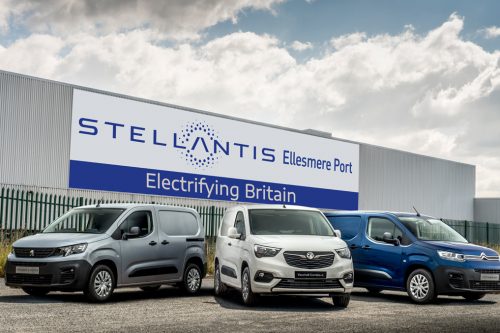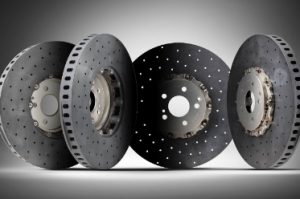Stellantis posts record annual results, but semiconductor shortage is drag on output

Car manufacturer, Stellantis, which owns the Vauxhall car plant at Ellesmere Port, reported record results for 2022 today, and a share buyback worth around €1.5bn.
The Amsterdam-based 50-50 joint venture between Italian-American conglomerate Fiat Chrysler Automobiles and the French PSA Group, published full year results showing net revenues of €179.6bn, up 18% compared with 2021, reflecting strong net pricing, favourable vehicle mix and positive foreign exchange translation effects.
Net profit of €16.8bn was up by 26%.
An adjusted operating income of €23.3bn was up 29%, with 13% margin, exceeding 2030 target of up to 12%. All segments contributed to both top and bottom line growth.
Industrial free cash flows of €10.8bn were up 78%, showing early progress toward the 2030 objective of up to €20bn.
Net cash synergies of €7.1bn were more than two years ahead of the €5bn annual steady state target.
The group said it has a strong balance sheet, with Industrial available liquidity at €61.3 bn.
It announced a €4.2bn ordinary dividend, corresponding to €1.34 per share.
The board also approved a programme to buyback company shares for a value of up to €1.5bn, to be executed in the open market by the end of 2023.
Stellantis said the company gained momentum on electrification, software development and vertical integration at a pivotal time for the industry.
Chief executive, Carlos Tavares, said: “In addition to our record financial results and the focused execution of the Dare Forward 2030 strategic plan, we also demonstrated the effectiveness of our electrification strategy in Europe.
“We now have the technology, the products, the raw materials, and the full battery ecosystem to lead that same transformative journey in North America, starting with our first fully electric Ram vehicles from 2023 and Jeep from 2024.”
He added: “My deep appreciation to each and every employee, and our partners, for their contributions to a more sustainable future.”
Stellantis’s electrification push accelerated with a 41% increase in global battery electric vehicle (BEV) sales year-over-year, to 288,000 vehicles in 2022.
With 23 BEVs now in market, the BEV portfolio will more than double to 47 by the end of 2024, supporting the target to have more than 75 BEVs globally and global BEV sales of five million by 2030.
The future of the Ellesmere Port manufacturing site was guaranteed in July 2021, when the group confirmed it would make new electric vans and passenger versions from 2022 as part of a £100m investment, including around £30m from the Government.
Around 1,000 staff are employed at the site.
The group said, importantly, all regions are growing and delivering record profitability.
The ‘Third Engine’ – Middle East & Africa, South America, and China and India & Asia Pacific – grew net revenues by 34% year-on-year and more than doubled its AOI contribution to €3.8bn for 2022, making progress to achieve the target of more than 25% of the company’s global net revenues by 2030.
Stellantis also said that it will distribute a record €2bn to its global employees, €200m more than in 2021.
In the US, Stellantis will distribute $14,760 each to eligible UAW-represented workers as part of a profit-sharing plan.
About 40,500 workers are eligible for the bonus, with actual payouts depending on individual compensated hours. The payout is up slightly from the 2021 fiscal year, when about 43,000 workers received $14,670 each.
However, chief financial officer Richard Palmer, said the shortage of semiconductors affecting auto manufacturers is still affecting production and output targets.
Vehicle deliveries fell two per cent last year, mainly due to semiconductors and logistics constraints, especially in Europe.
Mr Palmer said: “Semiconductors continue to be a problem, I don’t think the situation will be fully resolved in 2023.”
In other automotive news today (February 22), luxury car maker Bentley said it will cease production of its 12-cylinder petrol engine in April 2024, by which time more than 100,000 examples of the iconic W12 will have been handcrafted in the company’s ‘Dream Factory’ in Crewe.
The decision comes as part of Bentley’s acceleration towards a sustainable future through its Beyond100 strategy which will see the company’s entire model line fully electrified by the start of the next decade, reducing fleet average emissions to 0 g/km CO2.
This journey has already begun, with the introduction of the Bentayga and Flying Spur Hybrid models for which demand is exceeding the company’s expectations.
When production of the W12 ceases next year, Bentley’s entire model line will be available with the option of a hybrid powertrain. Meanwhile, an engine first made available in the sector-defining Continental GT, which has been powering Bentley both metaphorically and literally for the past 20 years, will be consigned to history.








